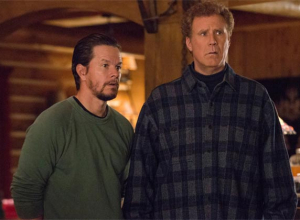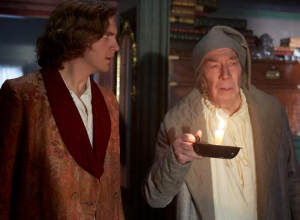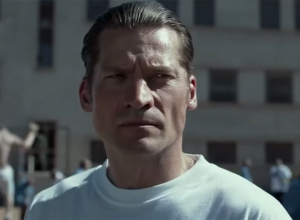Shame Review
By Jake Euker
The plot is simplicity itself. The Rosenbergs (played by Liv Ullman and Max Von Sydow) are a youngish couple enjoying average happiness on an island that's part of a larger, unnamed country. (The fact that Bergman chooses not to specify the film's setting, nor to clarify the conflict that follows, contributes to the film's surreal yet universal feel.) Both are musicians; they farm a little, too, and they drive their ailing truck into town to sell their produce. It's not an idyllic existence, exactly; the two are not above bickering, for instance, and in their discontented moments they may feel that they've settled for something. But it's essentially (and believably) a happy life.
A war that arrives on the island changes this. It looms into the Rosenbergs' life slowly at first, and then with startling speed. The two are detained first by one side - Ms. Rosenberg is filmed by them in an interview - and then captured by the other. Among the film's most frightening scenes is one in which the Rosenbergs are later shown the film; the face is that of Ms. Rosenberg, but the words she speaks - rebel, propagandistic sentiments - are not hers. Beginning here, Shame acquires a forceful surrealist inevitability. We marvel, along with the Rosenbergs, at the way logic is turned on its head, and we feel with them the tenuousness of decency and civilization. Few shots are fired onscreen in Shame, and there's little overt violence. Yet by the time the two take to the sea in a small boat to escape the war near the film's end, we've seen some of the worst of what humanity has to offer.
Shame's look and feel match these proceedings with eerie precision, and Sven Nykvist's clear black-and-white cinematography is evocative yet properly detached. But real and lasting credit goes to Ullman and von Sydow, whose performances here are among the best this writer has ever seen. Bergman wants us to know that war does more than endanger our lives: it robs us of our dignity as humans. As their allegiances to one another are tested - as they are forced to choose between love and survival - Ullman and von Sydow plumb depths seldom touched in film. Their performances are transcendent and wholly, heart-breakingly alive.
The final passage of Shame - in which the Rosenbergs, afloat in the sea and enveloped in deep fog, make an unexpected, appalling discovery - is among the most indelible in all of film. These final images are horrific, but they're not designed for easy sentiment, as they might be by Spielberg, and they don't carry the weight of a message, as they might in any other director's work. It was Bergman's gift and burden that he took his films as deep as he could, both emotionally and intellectually. At the end of Shame he shows the viewer the very depths of war, and he doesn't offer an easy way up.
Aka Skammen, The Shame.

Facts and Figures
Year: 1968
Run time: 101 mins
In Theaters: Friday 13th January 2012
Box Office USA: $4.0M
Budget: $6.5M
Distributed by: Fox Searchlight
Production compaines: See-Saw Films
Reviews
Contactmusic.com: 5 / 5
Rotten Tomatoes: 79%
Fresh: 154 Rotten: 42
IMDB: 7.3 / 10
Cast & Crew
Director: Ingmar Bergman
Producer: Lars-Owe Carlberg
Screenwriter: Ingmar Bergman
Starring: Carey Mulligan as Sissy, Michael Fassbender as Brandon, James Badge Dale as David, Hannah Ware as Samantha, Nicole Beharie as Marianne, Alex Manette as Steven, Elizabeth Masucci as Elizabeth, Marta Milans as cocktail waitress
Also starring: Liv Ullman, Max Von Sydow, Lars-Owe Carlberg, Ingmar Bergman














